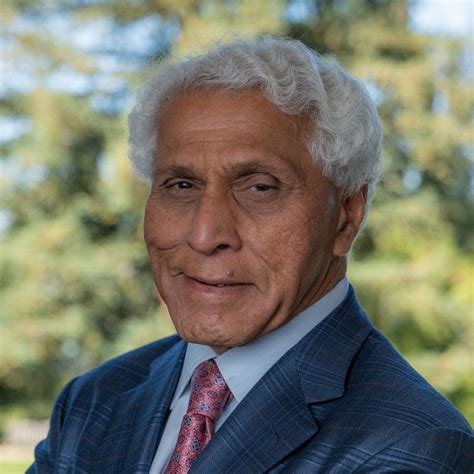Цитата Луи Навелье
Крупные бейсболки были в безопасности в 1996, 97, 98 годах. Все покупали индексные фонды и фонды Nifty Fifty. Пока деньги лились рекой, было здорово.
Связанные цитаты
Ничто так не подчеркивает продолжающийся разрыв между риторикой и содержанием в британских финансовых услугах, как неспособность здешних поставщиков подражать успеху индексного фонда Джека Богла в Соединенных Штатах. Каждый профессионал в городе знает, что индексные фонды должны быть основными структурными элементами в портфеле любого долгосрочного инвестора. С 1976 года индексные фонды Vanguard приносили совокупную годовую доходность в 12 процентов, что лучше, чем три четверти аналогичных фондов.
Даже поклонники активно управляемых фондов часто признают, что большинству других инвесторов было бы лучше в индексных фондах. Но, воодушевленные огромной уверенностью в себе, эти люди не собираются отказываться от активно управляемых фондов. Немного бредовый? Я так думаю. Выбирать наиболее эффективные фонды — это «все равно что пытаться предсказать кости, прежде чем бросить их на стол для игры в кости», — говорит консультант по инвестициям из Бока-Ратон, Флорида. «Я не могу этого сделать. Общественность не может этого сделать».
Когда мне было 23-24 года, я начал покрывать хедж-фонды — во многом это было удачей — когда никто другой этого не делал. Это было до того, как хедж-фонды стали самой красивой девочкой в школе: это была работа перед носом и беговая дорожка для хедж-фондов, когда с ними никто не разговаривал — тогда все было только о страховых компаниях и финансовых управляющих.
Наиболее частыми ошибками были вложения в фонды денежного рынка людей, настолько напуганных перспективой управления собственными средствами, что они выбрали самый консервативный вариант, и их вложения не поспевают за инфляцией. Второй серьезной ошибкой были слишком большие инвестиции в акции собственной компании и покупка, когда они были высокими и в отношении компании было много оптимизма, а затем необходимость продавать их по низкой цене, когда у компании были проблемы.
Переместите свои личные инвестиции и пенсионные фонды в фонды социально ответственных инвестиций (SRI), которые поддерживают только те корпорации, которые придерживаются более высоких стандартов поведения. Доходность фондов SRI обычно равна, если не выше, доходности многих известных традиционных взаимных фондов.
Во всей вселенной государственных и частных фондов менеджеры ежеквартально оцениваются по тому или иному показателю, определяемому статистикой, и относят к той или иной категории, так что фонды фондов, пенсионные фонды и другие учреждения могут утешать — если не обязательно благоразумно. - решения о распределении активов.
Для большинства индейцев в Америке богатство не передается по наследству. Мы также не преуспели в качестве руководителей крупных хедж-фондов и фондов прямых инвестиций. Чтобы достичь вершины, мы должны использовать наши ноу-хау для создания отличных новых технологических продуктов и создания высокотехнологичных компаний.
Тем не менее, я считаю, что мы не должны обескураживать поклонников активно управляемых фондов. Со всеми своими покупками и продажами активные инвесторы обеспечивают разумную эффективность рынка. Это позволяет остальным из нас делать разумные вещи, а именно индексировать. Хочешь присоединиться ко мне в этом паразитическом поведении? Чтобы создать хорошо диверсифицированный портфель, вы можете вложить 70 процентов своего портфеля акций в индексный фонд Wilshire 5000, а оставшиеся 30 процентов — в международный индексный фонд.
Потребность в сборе больших средств на избирательную кампанию исчезла бы, если бы Конгресс выделил ассигнования на надлежащие и законные расходы каждой из крупных национальных партий, ассигнования, достаточные для удовлетворения потребности в тщательной организации и механизме, что требует больших затрат денег. Затем следует сделать оговорку, что ни одна сторона, получающая средства кампании из казначейства, не должна принимать от любого отдельного подписчика или жертвователя сумму, превышающую фиксированную сумму; и можно было без труда обеспечить необходимую огласку доходов и расходов.
... скептицизм в отношении прошлых доходов имеет решающее значение. Правда в том, что, как бы вам ни хотелось знать, какие фонды будут востребованы, вы не можете этого сделать, как и легионы консультантов и изданий, утверждающих, что могут. Вот почему создание портфеля на основе индексных фондов на самом деле не означает среднего. Это просто отказ верить в магию.


































